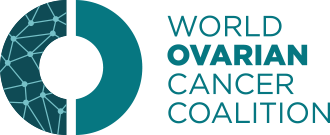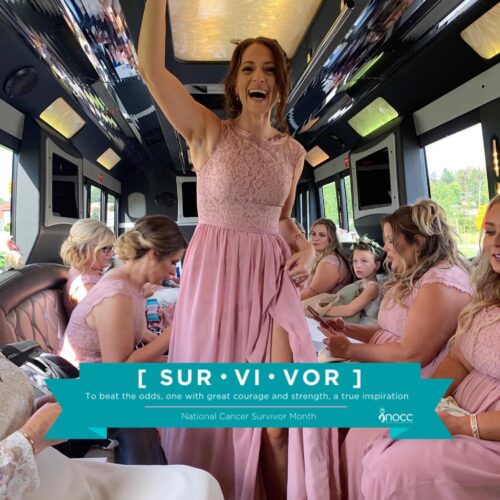
Sara
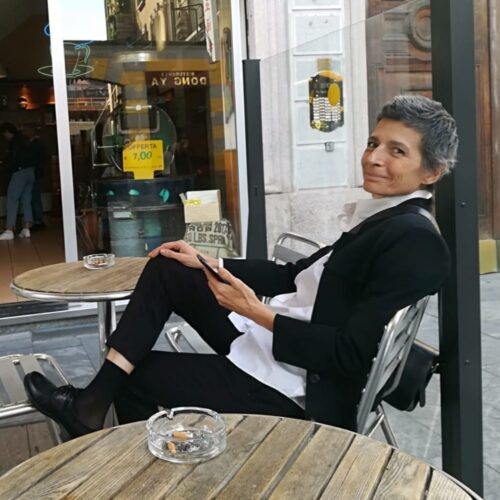
I.A.
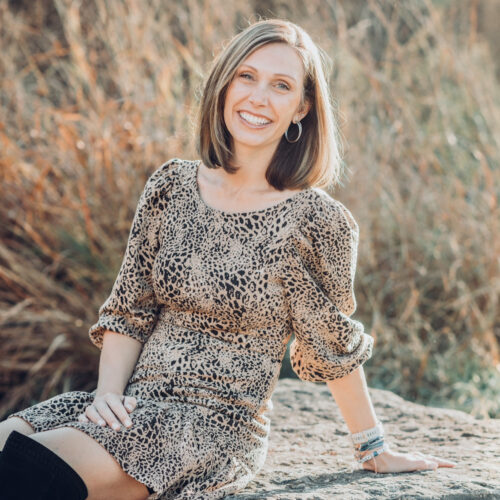
Randalynn
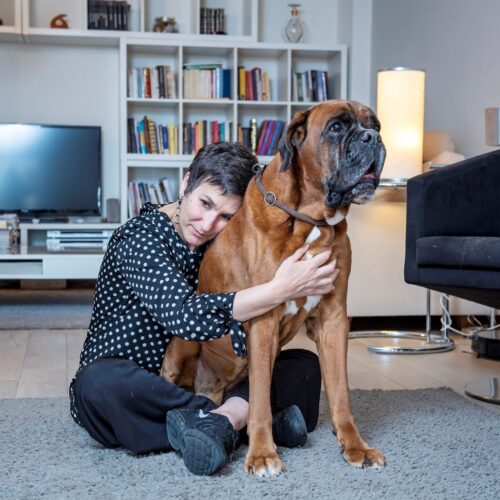
Paula
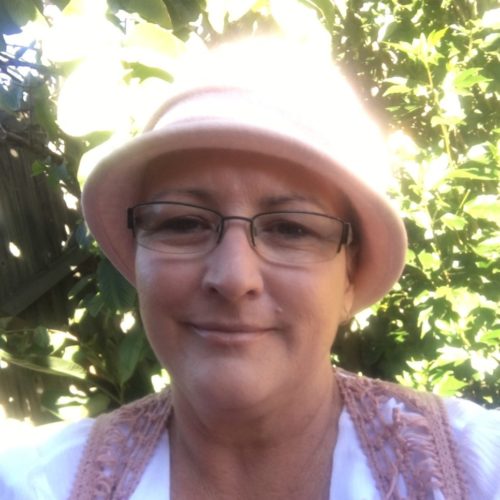
Julie
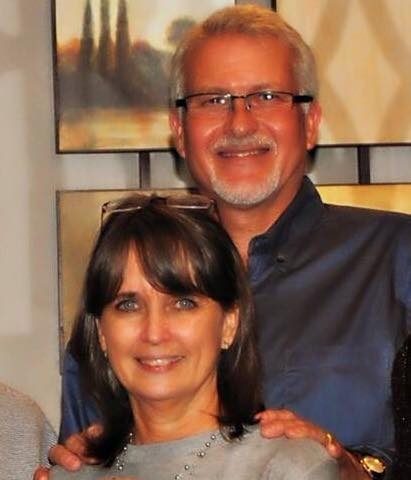
Kathy
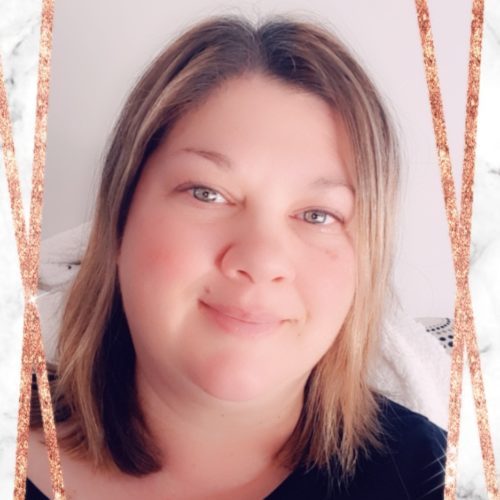
Tania
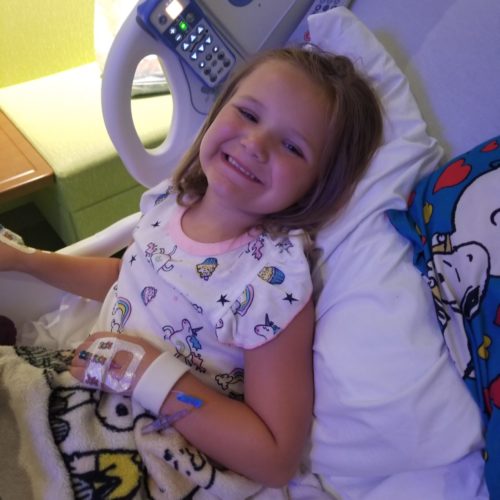
Bren’s Story
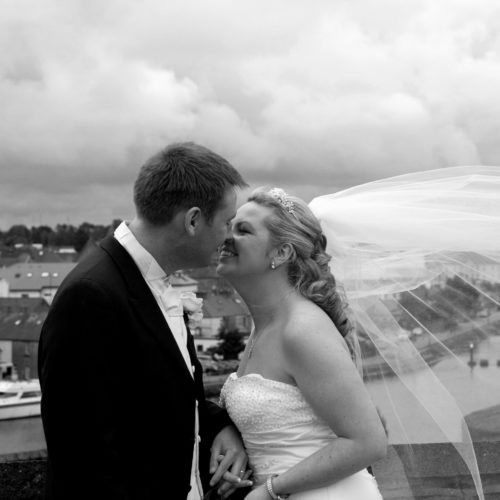
Denise

Eva
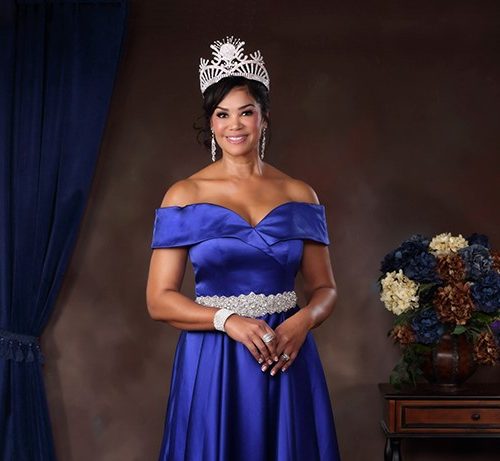
Libby
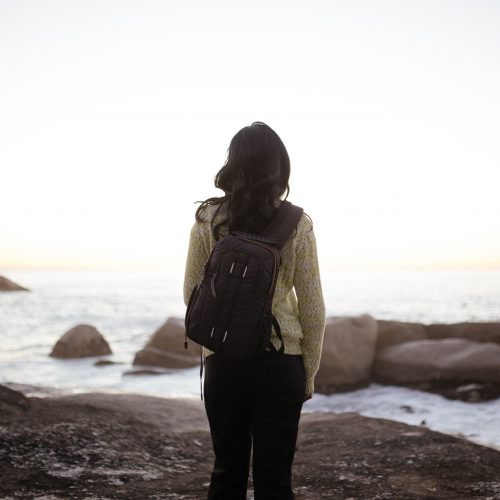
Amy
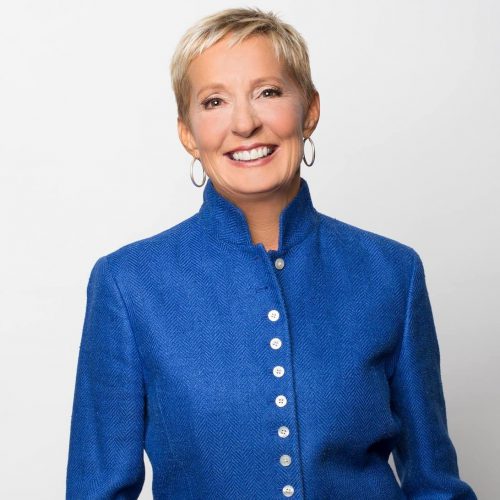
Karen
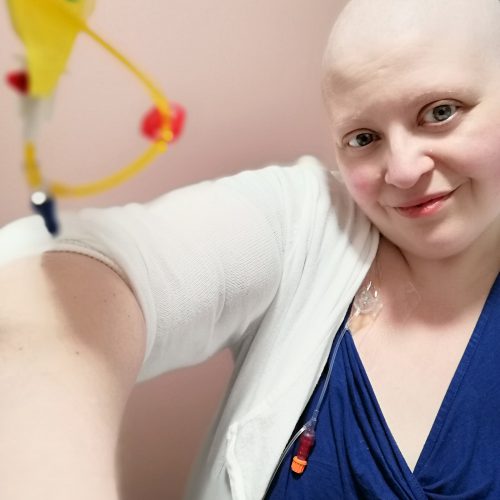
Valeria
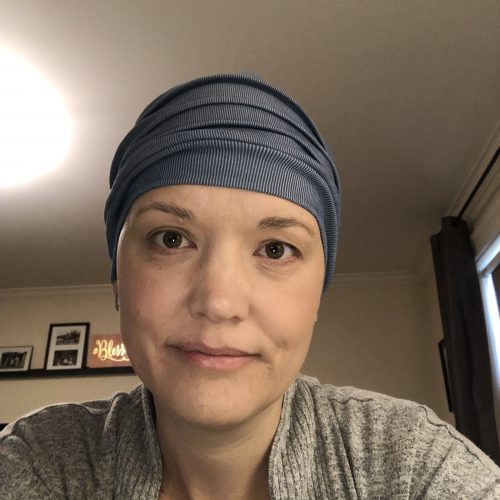
Christa
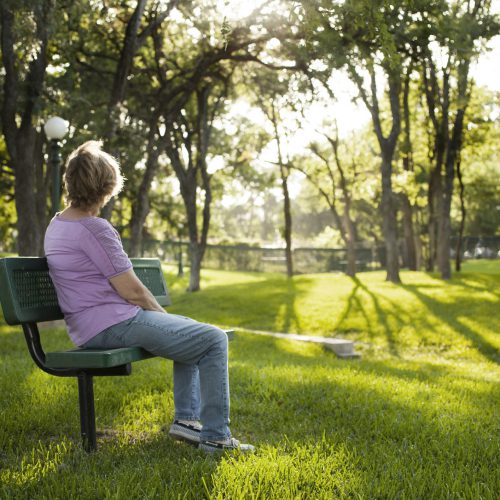
Anonymous
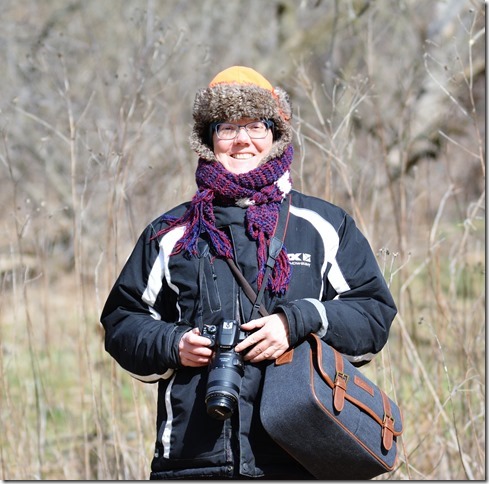
Nancy
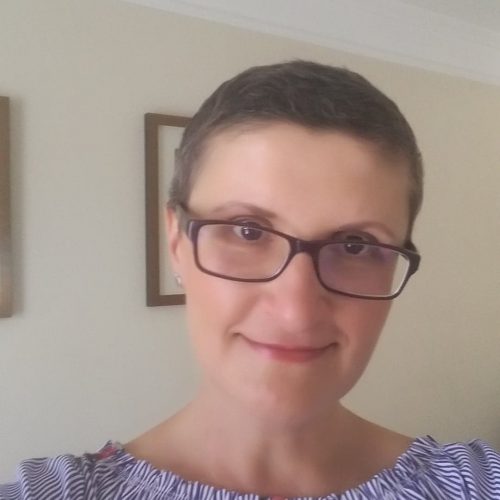
Mirela
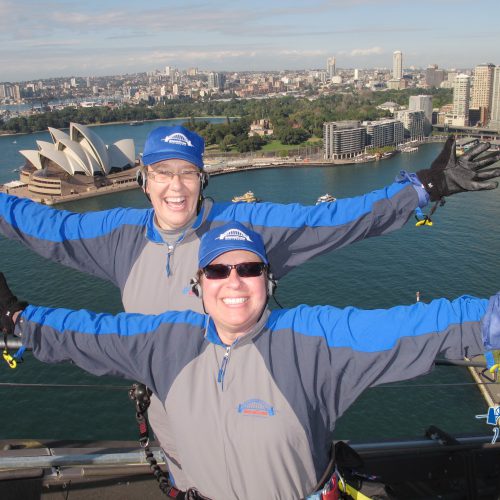
Hillary
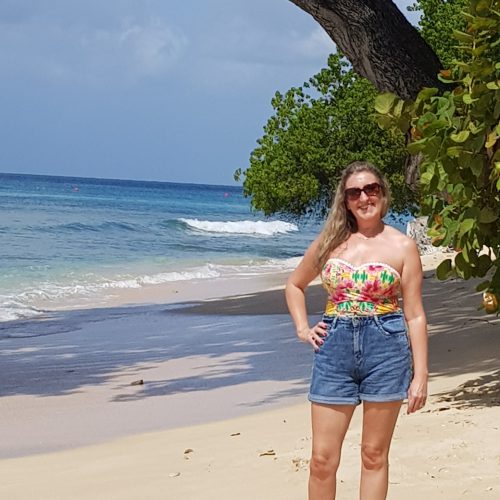
Sheena

USA, post-treatment on monitoring
Sara
A lot of who I was before I was diagnosed has changed. I am still me. I still love the outdoors, adventures, and traveling. I have a ton of close friends and family I spend my time with.
I never had any symptoms. I was diagnosed after surgery to remove what we hoped to be an ovarian cyst. It was found on a routine ultrasound after having an IUD placed. My mom, dad, siblings, and a few cousins were there as I received my Stage 3a High Grade Clear Cell diagnosis.
My diagnosis broke me, and I remember that it was the first time in my life my family has seen me crumble.
I had two back-to-back surgeries, followed by 20 weeks of weekly chemo. Afterwards, I then started a clinical trial that went on for two years. I recently finished the trial and am now just being monitored.
My support system was my rock. They showed up for me, celebrated me. They were there in the best and worst times.
Three months post chemo, my boyfriend Mark come into my life. His support and understanding has helped me survive life after chemotherapy. I would not be where I am now emotionally if it was not for him.
While I am more confident, and safe in the knowledge that I am who I am and that won’t change, the loss of being able to carry children has been difficult as has the fear of recurrence which never goes away.
The experience has taught me though, never to hide who I am and just be me. I’ve learned that it’s okay not to be okay sometimes and that you don’t have to carry the world everyday.
I never want to see anyone else go through this, but if they do, I’ll be there for anyone should they need it.

Italy, on maintenance therapy
I.A.
I was born in Buenos Aires and lived in Italy and provence-sud France. I am a designer, stylist, and graphic designer. I consider Milan my home, and it is now where I live.
My symptoms were more related to the intestine, but gynecological checks, including a scan that revealed a 12 cm tumour, which turned out to be a stage III ovarian carcinoma. In less than a month I was undergoing chemotherapy to reduce the tumour so they could operate. Five months later I had the surgery, however unfortunately another surgery was needed 8 months later in 2019.
I was alone when I received my diagnosis and I remember how hard it was for the doctors to give me the news. I also remember my heartbroken tears in the hospital parking lot. The hardest part was telling my teenage daughter.
This diagnosis has changed my life. I stopped working. I stopped travelling. I reduced the attention I gave to my family and my social life. I only took care of myself. I am currently on weekly taxol chemotherapy. Some of my doctors have given me their WhatsApp number or email address, and this has made such a difference to me.
My diagnosis has taught me that I had to simplify my life and my advice to someone just diagnosed is to stop – meaning pause your mind and be calm.

USA, 5 yrs NED July 2022
Randalynn
Before I was diagnosed, I thought I was healthy. I worked out regularly and was trying to get my feet on the ground as a part-time single mom of two young children after a recent divorce.
Looking back, I should have known I was sick. I was beyond exhausted, losing weight and unable to eat. Add in lower back pain and heartburn for a few months prior to being diagnosed. The pelvic pain and UTI-like symptoms didn’t start until a couple of weeks prior. I went to the ER for a UTI I couldn’t shake and two large masses on my ovaries were discovered. It wasn’t until a week after surgery performed by my OB/Gyn to remove a “dermoid cyst” that was no big deal, that I found out I had high grade serous ovarian cancer. The news came by telephone while my mom was out grabbing me lunch as some of my appetite has started to return.
Although I wasn’t surprised, hearing the words “you have ovarian cancer” hit me hard. I immediately picked up the phone and made the necessary calls to get an appointment at our local cancer center. I also had to pull myself together before my children came home that afternoon.
My nurses and oncologist were such a support. On the day I came in to learn what my treatment plan, post surgery, would be they reassured me, “all you have to do is show up, and we’ll do the rest – you just have to keep showing up and we will take care of you”. My oncologist has become one of my strongest supporters and partners in crime. We’ve teamed up time and time again to create awareness and raise funds for cancer research. Ask either of us how we do it, and each of us will say “I don’t know how she does it, I couldn’t do it!”
The diagnosis changed my life in that it made me realize how lucky I was to have been diagnosed in the early stages, and it woke me up in a way nothing else could have. It made me a stronger person than I never knew was possible and it has given me a voice that I won’t stop using until more women stand a fighting chance against this disease. My live-life list has many more things to check off – pushing myself to the limit with each one.
Ultimately having ovarian cancer has taught me that there was a kick-ass person inside me just waiting to be unleashed. There are days I sit and think if this hadn’t happened to me, would I ever have known I was capable of all this?
After the treatment stops, though, that is the hardest… what do you do then? It’s a mind game of when might this happen again, especially when you are young and thought you were doing everything right. How do I protect my children from this happening to them?
Today I am five years out from my last treatment, which took place on my son’s birthday. July will be five years NED (no evidence of disease). I’ve had my gallbladder removed and biopsied, along with a preventative double mastectomy since that time. The fight continues – just in a different way.
Until every woman has a fighting chance against this disease, I will keep using my voice to create awareness, raise funds for research, and support those who have been diagnosed. What I would say to other women is this, keep showing up, it is the hardest part but your medical team is going to fight for you if you keep showing up.
You can listen to Randalynn’s podcast here https://podcasts.apple.com/us/podcast/sips-with-survivors/id1563319173

Portugal, 7 relapses
Paula
Before – I worked in marketing communications and advertising and taught at the undergraduate and graduate level. I was very active, doing sports, travelling, enjoyed gatherings of family and friends. Luckily, besides sports activities that had to diminish, all the rest professional and leisure I still maintain… and very active.
My husband and I decided not to have children, but I had a lot of cousins and a sister, and we all joined every week just to hang out together.
There was a strong history of cancer on my mother’s side of the family so I always expected I would develop it. My mother, her half-sister and her daughter, all had breast cancer, so I always expected that I would get it, and kept a close surveillance on my breasts and regularly went to the doctor.
I had no symptoms at all prior to my diagnosis – maybe some occasional gas which I thought was due to age. I was actually diagnosed thanks to two different circumstances: I had to change my IUD and when I did it the new one started pinching me.
I insisted that something wasn’t right, so I had several ultrasounds, endovaginal and pelvic, and nothing came up. I kept asking for more tests, including an MRI, which also didn’t show anything. After several more doctor visits, a round of antibiotics and several tests later, my gynaecologist ordered a CA125 test, which showed very high tumour marker levels.
Almost a year after my IUD was changed, I finally had surgery, but the doctors had a lot of doubts as all the scans did not show anything. An exploratory laparoscopy turned into a laparotomy as they discovered ovarian cancer in 2011. With my husband by my side, post-surgery in the group consultation I was initially diagnosed as Stage IIIC Low Grade. This was later changed to Stage IV High Grade Serous Ovarian Carcinoma (HGSOC) and that it is incurable. I remembered being astonished and that what they were saying was just not possible. No way was it so serious and no way was I going to die like the doctors’ faces were telling me would happen.
Statistics were against me, but I am not a statistic. 10 years have passed with 7 relapses, 2 surgeries (one with internal hot chemo), and 5 rounds of chemotherapy. I have also had one stereotaxic radiosurgery and one thermoablation by microwave.Years ago, I was on a PARP inhibitor trial but relapsed. Currently I am on a different PARP inhibitor that allows me to be free of the disease for longer periods. The disease recurs every 2/3 years in the liver or around like spots of sand. I don’t have a specific protocol for my history.
My ovarian cancer diagnosis changed more than just my life – it changed my family’s. After it was found I was a carrier of the BRCA1 mutation, all of my family were tested. Of course, my mother and uncles are all positive and each uncle has one child positive. Some in my family discovered that this was the reason behind their cancers.
Personally, my life continued, and I received my PhD. I always wanted life to be as normal as possible, so I made every effort to keep the normality. My cousins spent more time with me, and my friends made sure not to postpone our good moments together – which was good and special. During this time my husband Paulo was always there for me, as well as my mother, and my stepdaughter. And, of course, my dog Enzo, a boxer who sat next to me after each chemo and stayed there for as long as I would be feeling weak.
Losing two friends along the way, one to cancer, was not easy. Also difficult were the two semi-occlusions (bowel obstructions) which interrupted treatment leading to a relapse, and were very painful. The rest has been quite easy, especially compared to what my mother’s chemo was like 35 years ago.
During this whole journey I have learned that I am a very powerful, strong woman. Resilient, but not tough. My diagnosis gave me a certain serenity towards life and its “burdens.”
If I could say one thing to someone just diagnosed, it is this – statistics may be bad, but each one of us is not a statistic and we may change our odds by taking the lead on your life. Learn about the disease, work as a partner with your doctors. Don’t make a decision, or let anyone else including your doctors decide, without being fully informed on all possible alternatives. It is your life, not anyone else’s.
And for everyone, it is important to know about your family tree and any BRCA mutations that you may have inherited.
There are 2 founder BRCA mutations (one for BRCA1, one for BRCA2) that are Portuguese in origin, and which have spread around the world in our many diasporas over several centuries. With many countries not analysing these specific DNA changes in Portuguese descendants because the most common BRCA tests do not detect these mutations, it means that many women do not know the risk their family members have, and that treatment options are not optimized for their specific ovarian cancer type. That is why it is important for women, and their doctors to know, so we have the chance of better outcomes.

Australia, 2 years post treatment with NED
Julie
A mother and grandmother working in HR & Compliance in the education industry, prior to diagnosis my life was centered around my children and grandchildren. When not busy with them, I also enjoyed renovating houses.
It took me almost two years to be diagnosed with ovarian cancer. My first symptom was extreme fatigue which led to a diagnosis of Hashimoto Disease. From the regular blood tests that are a treatment for Hashimoto, my GP noticed an increase in white and red blood cell counts and sent me to a haematologist. The haematologist ordered a CT scan. A cyst was ‘incidentally found’ near my pancreas. Four specialists and 9 months later and a biopsy showed that the cyst was in fact ovarian cancer that had spread to nodes near my pancreas and heart.
I was alone when I received my diagnosis. I was not yet aware I had cancer when I received a call from a hospital administrator confirming my appointment with the oncologist. I remember most the overwhelming amount of information that I needed to process quickly. I was trying to understand what everyone was saying, yet still trying to convince myself that this was real.
The unusual part of my diagnosis of stage 4B High Grade Serous Epithelial Ovarian Cancer is that no cancer was actually found in my ovaries or reproductive system. Nor was there any indication that there ever had been. Tests were run and rerun but this ovarian cancer was only located in nodes near my pancreas and heart.
On my journey, the most touching thing was to have my closest friend say ‘I am here holding you hand’ which filled me with such strength. I would never have been able to get through the never-ending regime of treatments, tests, medical appointments, and side effects without my mother.
I was a very busy woman prior to my diagnosis. Now two years out of treatment, I have had to learn what the ‘post-cancer’ me is capable of. Ovarian cancer has changed my life as the side effects of the treatment mean I can no longer work. I deal with severe neuropathy every day. It has been difficult and at times frustrating, but I am slowing accepting my new limitations. My outlook on life has also changed. Cancer teaches you to focus on your own personal happiness and to live a life true to you. You can no longer worry about the small stresses in life.
I’ve learned also that cancer does not come in neat little packages – it has a mind of its own. This ovarian cancer did not present in the ‘normal’ way, with the ‘usual’ symptoms. If you feel something is wrong, be persistent with your GP and insist on additional tests. My first diagnosis of Hashimoto’s Disease was actually a symptom of the cancer. Today I am over two years out of treatment and still NED (No evidence of disease) and I no longer have Hashimoto’s.
I knew I was a strong woman but didn’t realize I was also courageous and brave. Facing the possibility of your life ending, but still finding the energy to get up and fight every day, shows how brave you truly are. If I could share one thing it would be to never say ‘my’ cancer. It is ‘the’ cancer. You did not invite it into you life – don’t take ownership of it.

USA, cancer free since Dec 2018
Kathy
Before I was diagnosed, my husband and I had served as missionaries in Thailand for 25 years. During my time in Thailand I worked as a nurse in an orphanage for children with HIV. I also worked at the international school as the school nurse. I LOVED our time overseas and was sad when it was time to leave in 2014. We moved back to the US and settled in Indiana near family and friends. Not long after we returned my elderly mother was no longer able to live on her own, so we moved her into our home so we could care for her needs associated with Alzheimer’s. Her care was fairly consuming for me as she progressed further into the disease. There were many sleepless nights as we helped her navigate the changes she was going through. At the same time while I was immersed in my mother ‘s care I began to notice changes in my own health.
I mostly attributed my health issues to my lack of sleep and stress related to caring for my mother. The one symptom that was the most troubling and unexplained was the post-menopausal bleeding. When my mother had to enter the hospital for a while, I took advantage of that time to get myself checked with an OB/GYN. An ultrasound showed cysts on one ovary and it was recommended that it be removed and biopsied. The result was a benign cyst. BIG sigh of relief!! I had requested that the doc take everything at the time of surgery in 2015 but as it turns out she did not take the other ovary and uterus as I had hoped. The surgery report stated that the remaining ovary looked normal as did the uterus.
Within just a few months, I became symptomatic again and about 8 months after my first surgery I was back to a different doctor as my previous one moved away. I described the various issues I noticed – fatigue, increased reflux, bloating, and stomach gas as well as the return of the bleeding. Our GP quickly picked up on the red flags and ordered an ultrasound. The result was the remaining ovary was now the size of a small cantaloupe. I was referred to a gynecological oncology surgeon and two days after I saw him I was in surgery to remove the remaining ovary and my uterus. This time the biopsy showed stage 2 ovarian cancer.
My husband was overseas when I got the news that the remaining ovary had grown significantly. By the time of the surgery he had returned home and was with me and he actually got the news of a malignancy before I did. I was initially in ICU for a short time post surgery, so it was a day or so post surgery, with the doc and my husband, that I learned it was malignant.
I remember feeling terrified and then angry all at the same time. I was angry that the first surgery did not involve removing both ovaries and the uterus as I had requested. But the second surgery done by the GYN/ONC showed me why the first doc did not go ahead and remove everything. The second surgery report said that there was significant endometriosis that was attached to the ovaries and uterus and bowel and surrounding organs. An attending doc told us that was the reason for the ICU time was because of the difficulty of the surgery and significant blood loss in the process. I understood that if a less skilled or less confident doctor had performed this surgery that I could easily have not survived it. Knowing this has helped me come to terms with her course of action where I could have avoided ovarian cancer altogether. If I could have a do-over, I would have requested a referral to a GYN/ONC from the get-go. If I could only offer one piece of advice it would be to ask for that referral to a gynecological oncologist and then do you research to find the best one.
In the last five years I’ve had three surgeries and two rounds of chemo. I completed the first round of chemo and about 18 mos later a spot that was thought might be scar tissue turned out to be the same cancer. I was treated with another round of chemo in 2018 and as of Dec of that year there has been no sign of cancer. I’ve had a follow up PET/CT every three months since then and every scan has come back clear. Thank you Lord! My type of ovarian cancer does not fit the protocol for maintenance medication treatment.
I had a long list of people that wanted to be my “chemo buddy” (sit with me during my infusion time). It touched me deeply that they would be willing to give up a whole day just to come and sit with me during the infusion. It was so much fun for me and I know that more than once we laughed a little too loudly and had way more fun that anyone should ever have during chemo treatments.
While emotionally the fear was hard to deal with, I am trading my fear for faith. The hardest thing I had to deal with physically was a bad reaction to one of the chemo meds. I had to be taken to the ER three times to keep my airways from closing up. It took a week to get out of the danger zone and another two weeks for my rash to clear up. I don’t want to EVER do that again!
Cancer has been a very effective teacher. It has taught me that I can be fearless in ways I have could never have imagined. I am a woman of faith so one of the first questions I ask the Lord was “Am I going to live or am I going to die?” In answer to that question, the Lord reminded me the He has numbered my days. He decides when and how I will go home to heaven, not cancer. Cancer does not have the last say in my life, my heavenly Father does. Because I believe this, cancer no longer has the power to ruin my day. Cancer can no longer take me to dark places of hopelessness and fear that it once did. This is a battle for my mind and some days the struggle is harder than other days, but I’ve made up my mind to trust God with this. I’ve found there is a lot more joy and hope in trusting Him with tomorrow than there is when I try to figure it out on my own. I am very intentional now about focusing my thoughts on today and on seizing the opportunities that come my way. I have worked with my oncologist around chemo treatments, follow up appointments and tests so that I can continue to travel and work alongside my husband in Thailand and now the Philippines. Cancer is something that I have, but it does not have me.
I get my strength and support from my faith in Jesus. And when my faith gets shaky, as it may do from time to time, then my husband’s faith encourages me. He keeps lifting my chin up to cheer me on. I could not do this without the love and grace of my Father in heaven and I’m so grateful for the love and encouragement of my husband. I learned I can do this with God’s help and that I’m more fearless than I ever imagined I could be. I’ve always thought that the worst thing that could happen to me would be to have cancer. I’ve learned that is not true, there are a lot of things much worse than cancer. I’ve learned that good things can come from bad experiences. I’ve been abundantly loved and blessed through this cancer journey.

Australia, 20 years cancer free
Tania
Before my diagnosis, I was living in a beachside town with my boyfriend. We were both working and I was a manager for a major supermarket. In my spare time I would go fishing in our boat, catch up with friends, and generally enjoy beach-life and all that it offered.
For a few months, I was feeling very sore in the lower half of my stomach, a real heavy feeling. Quite often I couldn’t stand up straight, the heaviness was just too uncomfortable. I found just getting up and moving around exhausting and painful. I visited a GP and explained my symptoms and two other things that might have been relevant. I thought perhaps that scar tissue from a ruptured appendix that became gangrenous when I was twelve was causing pain. Secondly, bowel cancer on my mother’s side of the family was extremely common. The GP referred me to a specialist. I can’t remember how long I had to wait to see him, but it wasn’t too long. My specialist who was also a surgeon booked me in for scans and an ultrasound, which came up with nothing. The scar tissue didn’t seem to be an issue and my bowel looked good from scans. So he booked me in for a colonoscopy and gastroscopy. After surgery he stated my right ovary looked like a carnation flower, as I had some beside my hospital bed, or cauliflower like and was enlarged. He put a rush on the biopsy and said he would see me before I left the next morning. All the tests came back clear, and he suggested I come back to see him in a week to see how well I was feeling.
Before the week was out, I got a call from the surgeon to come in and see him. When I sat down with my boyfriend, the surgeon explained that he wasn’t happy with the initial results and he sent them on to a specialist in Melbourne. The result came back as ovarian cancer. I remember feeling numb and in shock, I was not prepared to be told I had cancer. I just thought it would be a case of needing my ovary removed due to inflammation and the problem would go away. Cancer was so far from my reality, I had only just turned 25 and I thought I was too young.
It was only a matter of two months from my first visit with the GP to diagnosis. Within three days I was booked to go to Monash Melbourne to meet with surgeons and have PET scans and ultrasounds. Within five days I was sent for surgery. They removed my right ovary and taken the ormentum plus lymph nodes out around the groin
I am now twenty years in the clear (except for a scare 14 years ago), I have checkups on my own accordance every two years or when I feel the need. They had removed my right ovary and taken the omentum plus lymph nodes out around the groin, they were all clear. They didn’t do chemo or radiation as they got really clear markers. The surgeons said my case was rare and they thought that would be the right way to go.
I was told I may never have children, but we were blessed with a beautiful baby boy three years after my diagnosis. He was five when I had a scare of a possible recurrence. I was told if we wanted more children that we should start trying as there was no way of knowing if that would be an option in the future. It took us over 12 months, but we were blessed with another beautiful baby boy AND with the news that the cancer had not returned.
My boyfriend was a gem, and his kindness and nurturing care throughout it all meant more than he will ever know. A scary diagnosis and the possibility of infertility meant he could have left me, but it was my comfort blanket to know that he was there no matter what. I knew that no matter what would come at us for the rest of our lives, we will be all okay because we will survive anything – he made me strong. We have been married 19 years and have been together for 25 years in total. He is my super rock, and he with my 18 and 11 year old sons are my rocks and strength.
The hardest thing I have had to deal with is the reality of what could have been if not for a very persistent surgeon. I tend to dwell on this which has given me daily anxiety, even after 20 years. But with my young family on my team I’m happy and supported. I’m stronger than I thought, and life is short. I have been taught to be grateful and feel blessed for what I have and that everyday is a new day and a new blessing – I am thankful and I try not to sweat the small things in life.

Bren, 6 year old survivor
Bren’s Story
My daughter Bren was a normal, fun loving 5 year old. She loved to play with her baby dolls and swim.
Bren had intermittent belly pain for months, but nothing severe and it was written off as a run of the mill tummy ache. The alarms went off in the summer when she started menstruating at 5. I immediately rushed her to our family doctor, who after a thorough exam ordered hormone labs and a pelvic ultrasound. We had the ultrasound a week later and it showed a mass on her left ovary. We were sent to the local pediatric hospital at the University of Virginia the next day. The did a confirmatory MRI and set her up for surgery to remove her ovary the following week. Despite the fact that it almost unheard of at her age, her lab work made them suspect ovarian cancer. Her CA125 was 40, A was 572, and her inhibin was 2870. We received confirmation of that diagnosis when the pathology report returned post-op. It was indeed ovarian cancer.
As her Mom, I was told about her diagnosis. At her age, it was a very complex thing to grasp. She knew that the doctors removed the bad thing that was making her sick and that they were going to do everything they could to make sure she stayed healthy. Following her oophorectomy, Bren’s cancer antigens all returned to normal levels. That combined with a exploratory laparoscopy of her pelvic area and abdomen, her oncologist decided she did not need to undergo chemotherapy. She continues to see her oncologist every three months to repeat those labs and have a pelvic scan. She has had one check up since her surgery and everything continued to be normal.
All I can remember from the day she was diagnosed is the shock I never dreamed that my 5 year old daughter would have cancer, especially ovarian cancer which is normally associated with middle aged and older women.
This experience has made our family cherish our time together more. It showed us that literally anything can happen without warning and every moment we have is precious. Bren is lucky to have a big support system. Me, her mom, her dad, her brother Quaid, her sister Cora, her Gaga and Grandaddy and her Nana and PapPap, as well as the aunts, uncles, and cousins that all helped her through her recovery in one way or another. She also is well loved by our Pastor and his family. The day of Bren’s surgery he left the summer camp several hours away that he was helping with so he could come to the hospital. He sat with her in pre-op for hours entertaining her; when she went to the OR he stayed to comfort us and pray for Bren and he didn’t leave until she was out of recovery.
This experience also helped to strengthen our faith. We learned to put our trust and faith in God for Bren’s recovery. He heard the many prayers that went up on her behalf and delivered her. She would often be found singing (and still does) in her small still voice, “my God is so big, so strong & so mighty, there’s nothing my God cannot do”! How right she was!
The hardest thing out of all of this was feeling helpless, not knowing if she could or would make it through initially and if she did, would it come back? And when? My daughter’s diagnosis though, has shown me how strong even a tiny woman can be. She was never intimidated. She had to deal with a massive hormonal surge, her first period, her first hospital stay, her first surgery, all before starting kindergarten. I am in constant awe of her strength. My daughter didn’t let cancer intimidate her, she just knew what had to happen but she never let it take her joy or her spirit, which is the only advice I could give.

Ireland, 6 years in remission
Denise
Prior to my diagnosis I was 31 and loving life. I was just over a year married, and I had given up my job at the bank, and life was good. We were looking forward to starting a family and we went for a few tests to make sure everything was in working order. I had been having a dull ache on my left side once a month and saw my doctor who assured me that it was ovulation pain. After a routine surgery in December they discovered on my left ovary what they thought was a cyst, but it turned out to be a tumour. They told me I had cancer cells in the fluid of the ‘cyst’.
I had to wait until the spring of the following year for a laparotomy to assess the grade of the tumour. My proper diagnosis came in early May – I was alone in my hospital be when I was informed that I needed more surgery and chemotherapy. I remember feeling alone, very swollen and sore after my procedure and afraid of what was coming next.
After my treatment finished over a year later, I did a round of IVF on my remaining ovary and to our amazement it actually worked. However, I miscarried at 8 weeks and that was very hard to deal with and then I had a hysterectomy. My husband gave me strength in the dark days to keep me going. This experience has changed my life completely, with all of our hopes of starting a family gone. This diagnosis took all of our hopes and dreams for the future away from us.
During this journey, everyone was around me was brilliant, but kudos have to my amazing husband! The little things like even cooking a dinner for me was great and on days when I felt like doing nothing my friend Hazel who to bring me for lunch or a giggle which always cheered me up.
I have learned that no matter how much of a bad day I am having, that the worst ones are behind me. If I could offer some advice it would be to take each day as it comes, take help if friends or family offer it, and that there will be bad days but they too will pass.

Finland, cancer-free
Eva
Before my cancer, I was a half-marathon runner. I trained weekly and competed a lot. I studied developmental psychology, and had just received my master’s degree for teaching.
I did not have any symptoms. When I was 27, during an ordinary health check in 2008 the nurse told me she found something when doing a stomach examination, which the doctor confirmed. Two weeks later a gynecologist told me that I had a large tumour in my ovary but that it looked good. After the first surgery, it was discovered to be malignant. A second larger surgery a month later meant I did not need to have any further treatments.
Six months later the cancer returned – this time in my kidney. My third operation removed my kidney and I went on chemo (BEP – Bleomycin, Etoposid and Cisplatine) in 2010.
The day I was diagnosed with a rare ovarian cancer called Dysgerminoma, I remember I was pleased to go to the doctor to get answers to my many questions, but when I saw her face I knew it was bad news.
My life, unfortunately, changed a lot. The chemo left me bedridden for a long time, and the treatments left me unable to continue to train for and run half-marathons. I developed hypothyreosis from the chemo and the remaining ovary did not work anymore. The myoma in my uterus was growing so I had another surgery to remove the uterus and the ovary. I can no longer have children and had not had any prior to diagnosis. I’ve been left with severe fatigue and cannot work 100%.
But, my diagnosis has also been a positive change in my life. I studied to become a nurse and then a cancer nurse. After my cancer I have been an active patient advocate in my country and Europe as a whole as I am a member of many European cancer organizations. I also founded a new gynecological cancer patient association in Finland with two other people.
I remember one friend who called me everyday during treatment, and although I was so sick and could not speak, she always called and talked to me. Everyday she asked me the same question, “what has been good today?” I really did not understand the question at first, and I had no answer when I was sick. When I got a little better, I tried to answer the question everyday because I understood she was me to think about something good.
Two months after my treatment, I got my lovely cat Tigris, who has been my joy. She gives me so much hope, joy, and love, and is my everything even now.
I am stronger than I thought I was. I can survive the bad and try to find the good and be glad of all that I have. But the hardest thing I had to deal with was being so sick and having to rely on my parents for day and night help. The surgeries were major and hard. The hardest thing is to know I can never have children and that I will have side-effects for a long time to come.
If I were to offer one piece of advice, I would say talk openly to your family and friends – they will help you. Talk to a professional who can help you with anxiety.

USA, cancer-free since 2008
Libby
Before my diagnosis with cancer, I lived a happy-go-lucky life, traveling around the world with my husband while working as an independent marketing consultant. I was healthy and we were trying to have a baby!
I was heading full speed into fertility treatments until the specialist discovered my enlarged ovary via a transvaginal sonogram. I was referred to a gyn-oncologist as a “precaution”. During exploratory surgery, granulosa cell tumor (ovarian cancer) was confirmed and the cancerous ovary was removed that day. I had no obvious symptoms, but in retrospect, I realized my symptoms were extreme fatigue and frequent bathroom visits since my enlarged ovary was resting on my bladder.
It was my husband who told me I had cancer when I was in recovery after my exploratory surgery. I was in shock. I felt like I was living some bad nightmare and hoped I’d wake up and realize this was not my life. After the shock, I was relieved the cancer had been discovered. My ovary was the size of a brick and on the verge of rupture putting me at higher risk. I was thankful that this had not happened. I was thankful that I still had one ovary left and hopeful I’d still be able to have a child.
My oncology nurse was so caring; I was still grieving my mother who passed away six months before I started chemo. I was an emotional wreck and she was so positive. I could tell she cared and it made a big difference. My husband is so supportive and made sure I have everything I needed and did everything he could to reduce my responsibilities in our household so that I could focus on healing. With my mother’s passing from cancer, I felt obligated to be strong and fight because I had been spared. I felt she was watching over me.
The hardest thing I had to deal with was the “blow” each time it returned – it happened three times beyond my initial diagnosis. Having to tell my mother who was terminal from lung/breast cancer that my cancer had return was probably one of the hardest things I’ve ever had to do. I had to tell her and convince her I’d be ok. Today my hair sucks and I have neuropathy that affects my day to day life.
My diagnosis taught me that I am fearless, I am strong, and I can do anything that I set my mind to. I am unstoppable. Before cancer, I doubted everything about myself. If I had to offer one piece of advice it would be that you can’t treat what you don’t know about. Knowing you have cancer is a blessing as you can come up with a course of proactive action. Keep your head up and move through the process to better health.

USA, post-treatment
Amy
Life prior to my diagnosis was typical – spending time with family and friends, I was recently married and returning to college.
My diagnosis came as a result of a car accident in June 2013. No one was severely injured – and I refused care from emergency personnel. A couple weeks after the accident, I was having severe pain in my abdomen and went to the ER at a nearby hospital. There were fibroids visible in the CT scan and the practitioner recommended a follow-up with an OB/GYN. The gynecologist recommended an MRI and that’s when they realized my symptoms were more involved. I had a softball sized tumour resting on top of my uterus and multiple cysts and growths on my left ovary. I was told surgery was the best choice, and that it was the only way to determine what stage it was. Surgery was scheduled about three weeks after the MRI. The surgeon, a gynecological oncologist, reported findings of Stage 1 ovarian cancer, left ovary and tube. I had no symptoms leading up to my diagnosis and had expressed that my cycles were irregular, but no further testing was completed.
I did not want anyone with me when I was diagnosed, and I remember that day thinking about the possibility of not being able to have children. I gained new appreciation for the simple things in life and fortunately no further treatment was necessary.
My family and friends are the best support system and my husband helped me change out my foley/cath – that’s love! My best friend inspires me daily, she one of the strongest women I know. I’ve learned that I am resilient and need to slow down.
The hardest thing I’ve had to deal with is being in menopause early and redirecting questions when people ask, “When are you going to have another baby?” If I had to offer one piece of advice it would be to advocate for yourself and surround yourself with family and friends that will support you.

USA, six-year survivor
Karen
Before I was diagnosed, I had been a nationally touring comedian for twenty years. I was on the road a lot and ate way too much fast food, but I was active and other than that, had a pretty healthy lifestyle.
One night out of the blue, I had shooting pains in my abdomen – I almost went to the emergency room but instead went to WebMD and diagnosed myself with IBS. My annual checkup was coming up, so I didn’t see any reason to rush in any sooner because who hasn’t had cramps? Six weeks later when my appointment rolled around, I didn’t expect my routine check up to be anything other than routine. In fact, I had forgotten about the cramps and didn’t even mention them to the nurse practitioner when she asked me if I had any concerns. Then she started examining me and when she got to my abdomen, all the blood drained out of her face and she said, “You have a huge mass.” She immediately sent me for an ultrasound and a sonogram, but it didn’t tell us anything except that it was huge. She then ordered a CT scan and a CA125 blood test. I had the scan the following week and met with the Oncologist. He said that he was 98% sure that it was cancer but there was no reason to biopsy because it was so large that regardless it had to be removed. He also had the results of my CA125 blood test. Normal range is 0–35 and mine came back at 11,000. The next week I was in surgery and when my doctor cut me open, my right ovary popped out the size of a cantaloupe and my left ovary the size of a grapefruit. I was very fortunate that the cancer was contained to my ovaries and I was first diagnosed at a 1C but after the labs came back it was changed to a 2A because they found a spot in my fallopian tube. Luckily, there was also fibroid tissue mixed in which contributed to the size and made them easier to detect. Everyone always says that they can’t believe I didn’t have more symptoms and I DID have symptoms … I was tired, bloated and felt like I could never empty my bladder and that of course describes every middle-aged woman I know!
My partner sat with me through every minute of chemo and went to every doctor’s appointment.
My dad had passed away nine months earlier and I live 30 miles away so my brother would go every day to check on mom so I wouldn’t worry about her being alone. When I found out that I had cancer, how to tell my mother was my first concern. She is a worrier, but she’s also a “fixer” so she took on the role of staying with our dogs for the eight hours I was in treatment so I wouldn’t worry about them. Friends sat up with me at the hospital, brought me food, other comedians had a benefit for me – anything I needed was done. I just had a huge support system. My family, my friends, my pets, and of course my doctor and the oncology staff all gave me strength and support.
The hardest thing I’ve had to deal with is having no hormones and not being able to take any. I hate not feeling strong – it’s so hard to build muscle and is very frustrating.
Life is short and I’ve learned not to take it for granted. I would tell anyone to stay positive and find humour anytime you can. Cut negative people from your life. Take responsibility for the energy you allow in your space.

Italy, recovering from recent recurrence
Valeria
Prior to my diagnosis I used to be a language teacher, audiovisual translator, and academic researcher in language and translation. I was career focused and was starting to plan a pregnancy with my husband.
I had several unspecific symptoms and was misdiagnosed for a whole year before my ultrasound which led to markers and other diagnostics. I was alone and I remember the doctor telling me to sit down, speaking with a warm voice. I remember the white envelope containing the markers results sitting on a mint green table – the doctors coming and going in front of the ultrasounds screen – speaking between them as I was not there. I felt a cold chill behind my back.
The diagnosis changed everything. The thought that I could have died made me become different and I am trying to make every moment count. Although I kept my uterus through my treatments and am a candidate for heterologous fecundation [insemination] with egg cell donation and future IVF, the hardest thing above all is that I will never have children that share my DNA.
I had lots of valuable moments in my cancer journey, but maybe one of the sweetest was during one of my last chemo sessions. I had neuropathy in my legs and felt the need to walk up and down the corridor. I stopped to rest during the walk and I realized I was just in front of a blue eyed girl with no hair at all on her head. She was bald. Scared. In pain. And beautiful. Just like me. A sister. We felt it immediately.
She invited me to stay with her and we started chatting about ordinary things, totally forgetting where we were. All the other girls nearby were listening and little by little they left their chemo armchairs and joined us. We had a super wonderful tea chemo party, chatting and laughing with nurses and among each other. We pretended to be at a hairdresser with the only difference that we were speaking about chemo caps and foulards rather than hair or nails or make up and normal girly conversation. This was so cute. We all ended up with a best-chemo-ever! smile on our faces. Maybe this is the sweetest memory I have of my entire cancer journey.
I am recovering from a recent cancer recurrence and I learned that I am a rock. I would tell anyone just diagnosed that you don’t have to act like a fighter or a warrior. Search for inner peace and value every moment of your life as precious. I get my strength through supporting others, including running a Facebook group supporting ovarian cancer survivors in Italy called ovariancanceritalia.

Canada, on maintenance treatment
Christa
Before I was diagnosed, I was a mom to 3 daughters, worked as a medical admin, enjoyed coaching basketball and was a runner.
I had physical exhaustion for months with irregular periods. I visited the doctor late January due to ovarian pain. Had an ultrasound one week later and was referred to a gynaecologist. She assured me she didn’t feel it was cancer but I did have multiloculated cysts and an elevated CA 125. Had surgery within 6 weeks to have a hysterectomy and cancer was found. Stage III high grade serous. I’m 44 years old.
I finished my weekly chemo Fall 2019. I receive a maintenance drug every three weeks and am hoping to get approval for a parp inhibitor.
My husband is my rock and was by my side for my worst day ever. I received so much love from my family and friends.
The hardest thing I have had to deal with is chemo illness, fear of future, the thought of dying and leaving my daughters without a mom. I learned that being healthy and active doesn’t allow one to avoid cancer and that I am more resilient than I ever imagined. If I could offer one piece of advice it would be to lean on others and allow yourself all the emotions that hit you. It’s ok to cry and be sad.
You can read more of my story on my blog.

USA, 38-year survivor
Anonymous
I was young, just married and pregnant. It was a long time ago, and any symptoms I had were blamed on the pregnancy. I had my son by C-section and an ovary was very large with many cysts, and three of them were malignant. I was extremely lucky as I was stage I.
I had to have a hysterectomy at 20 and everything changed. I was not ready for it. Beyond dealing with the effect of the hormone changes, I don’t think it hit me how blessed I was until we lost Gilda Radner. My aunt had a hysterectomy very young and was there for me anytime of the day or night that I needed her. My circle of women who loved me through it, my mom, aunt, sister and my bff who was like a sister to me gave me strength and support.
The hardest thing I have had to deal with was being told that my cancer was not a big deal as I didn’t have chemo, and being told I was less of a woman after the surgery. I would tell other women that it is okay to be scared and to tell people when it is too much for you. You can get through this.

Canada, on weekly chemo due to recurrence
Nancy
Before my diagnosis, I lived on a 100 acre farm in the country. I lived with my significant other and my best buddies were my two cats and dogs. My spare time was spent walking my dogs Max and Casper. I hunted in the spring and fall and loved to be outside.
One Friday afternoon at work I got a sharp pain in my stomach. They sent me home, as I was never sick. I started to vomit which continued for days. I went to the walk-in clinic on Sunday and they said my stomach was upset, but my family doctor on Tuesday felt a mass. I had an ultrasound on Wednesday and an oncologist ordered a CA 125 for Friday. I was basically diagnosed with cancer that week and they just needed to determine which kind. My tumour had grown through my bowel and closed it. I was diagnosed 3c serous, which was determined to be low grade.
I felt like I had been hit in the head – hard! I felt blackness. I went for a drive and there was a turtle on the road. I got out and ran to pick him up and a truck ran over him. I bundled him up and took him to my vet; I was crying my eyes out about the cancer and the turtle all mixed together. My vet and her husband hugged me and called the “turtle lady” to take the turtle to a rescue place. He recovered and I was able to participate in his release at the same time that my front-line chemo ended.
I gave up my second job, sold the farm, and downsized. My relationship ended, not due to the cancer directly, but it didn’t help. I didn’t have as much energy as before. I have permanent neuropathy in my hands and feet. I am accommodated at work to sit at cash, and do not lift more than 10 pounds.
After chemo and surgery, I had two years without drugs or cancer. It recurred this year at the two-year mark and appears to be permanent. I tried chemo but was platinum resistant and Letrozole did not work either. I suffered through many partial small bowel blockages, which really made my life difficult. I am on a low-residue diet. I switched to a research oncologist who put me on bevacizumab and paclitaxel. I have not been ill since. I have weekly chemo and have cut my work schedule to five days, generally part-time. I feel the best I have all year, but have to pace myself due to fatigue.
My sisters have been there through my recurrence. One sister, who lives an hour away, has volunteered to drive me to as many chemo treatments as possible and another sister and her husband have come once a month to keep up my house – plant a garden and fix anything that needs fixing. A friend has been walking my dog on chemo days. So much help and thoughtfulness!
I am more accepting of my “fate” than I thought I would be. I may worry or stress, but on the whole I have a vision of my life as a path with one foot after another. I am stronger than I thought. I have had to learn to accept help when offered and to ask for it when not.
I would tell anyone diagnosed to build a team to support you – family, friends, neighbours, and professionals. It takes a village to fight cancer. My recurrence will be manageable for only a few years, and while I am still working I am carving out more time with my pets, family, and friends. I now take the opportunity to go out for dinner or see a play or visit with family. I also volunteer twice a month at the Cancer Clinic – on the chemotherapy suite committee and as a patient advisor. I look for humour in things, including procedures being done to me! A difficult lesson was that I have the right to feel what I feel – including being sad or angry. I have great quality of life now with my new chemo and am living my life the best I can.

Romania, on maintenance treatment
Mirela
I was 33 years old, happy that I had met the man of my dreams and we had our wedding planned for the year to come. We had plans for a family, and I was loving my job and what I was doing. I began to gain weight, without any major changes in the way I ate. I felt very bloated and needed to urinate more often. I thought it was a urinary infection and tried to treat it on my own.
In August 2016, I went to see my family doctor who performed an ultrasound. He said to go see a gynecologist, because I had some small cysts on my ovary, but other than that, there didn’t seem to be anything out of the ordinary. I didn’t get an appointment until the beginning of October but I went back to a general practitioner before that as I began to have major stomach aches. After an ultrasound I was immediately seen by a gynecologist to have a CT done. In the afternoon the tests came back and the doctor wanted to see me. I would definitely need to see an oncologist and have surgery. The cancer was grade 3b high-grade serous carcinoma, as it had spread to my peritoneum.
At first, I was in complete denial, then I tried to negotiate my terms with God and change the situation by telling myself that doctors don’t know what they are talking about … then, one night, it hit me … no matter how poor or wealthy one is, no matter how much wrong or good you have done in this world, we are all the same. I was not the first nor will I be the last to go through this. I began my treatment; I began to read and change my diet. I began to think positively and focus on my upcoming wedding, and life went on.
I’ve been through treatment and had surgery in April 2017, followed by three more rounds of chemo. Then in November 2018, I had my first recurrence. I’ve been on another six rounds of chemo and I am currently on maintenance treatment.
I had the support of all my family, friends, and co-workers. What touched me the most was that, when I had the surgery, I needed people to go and donate blood for me. I was impressed by the reaction and the number of people who went and I will be grateful for their gesture forever. My husband gives me strength and support and he stayed by my side no matter what, always trying to make me feel loved and special.
Ovarian cancer has taught me that I have the strength to see the good, even in the worst case scenario. I’ve learned I can discipline myself, as long as I find my motivation. I would tell others that you can still live, even with ovarian cancer. You can still enjoy the pleasures of life. You will have moments when you will feel you can’t take it anymore and that the purpose is of all the things you’re going through. But that will pass once you realize you matter. You matter for yourself and for your loved ones and, as long as you have a purpose in this world, you will continue to live. Take a moment for yourself and look around. See all the beauty that surrounds you and find the strength in what brings you joy and peace.

USA, 10-year survivor
Hillary
Prior to diagnosis my everyday was centered on work, marriage, family, and friends. I had symptoms for six months but delayed going to the doctor as I thought it was just intestinal stuff. I was alone when I was diagnosed, and I remember feeling like I was going to die. Since my diagnosis I’m more cautious about risk and cherish my friendships. I met my wife Shawn during chemo who told me she didn’t care how long I had to live she just wanted to be with me and she gives me strength and support. I am a 10-year survivor and this has taught me I’m tough. I would tell anyone just diagnosed to never give up!

UK, two years in remission
Sheena
Prior to diagnosis, we ran our own company. I was a bit of a party animal and loved to travel. I had no symptoms other than feeling a lump in my groin area. On the day I was diagnosed I remember having to tell our daughter who was pregnant with our first grandchild. Ovarian cancer has changed my life in that I live life to the max. I am very grateful for the early diagnosis and for the fantastic support we had from family and friends along with the amazing care from the oncology team. I’m in remission two years on and get checked every six months. Our daughter and amazing grandson give me strength and support. Ovarian cancer has taught me that I can get through a huge battle that I would have said I never could before. If I had to offer one piece of advice to someone just diagnosed, I would say try and remain positive, there is fantastic care and new treatments being found every day. Stay strong and you will smash this. Be grateful every day and cherish every second as you never know what is around the corner. Most importantly laugh a lot.
